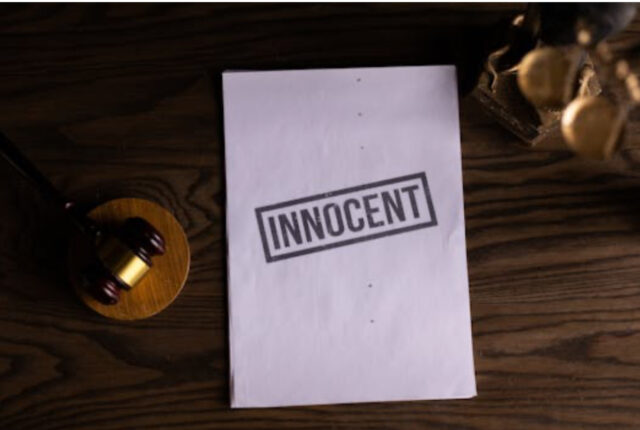Facing complex allegations can be a daunting experience for any professional. Navigating these turbulent waters requires a strategic approach to protect your professional reputation and ensure a favourable outcome.
Whether you are dealing with issues related to conspiracy or other intricate legal matters, having the right guidance can make all the difference. When embroiled in such cases, seeking advice from specialists, such as those at Conspiracy Solicitor, can provide invaluable support.
But what about your reputation? In this article, we’ll explore how your professional reputation may be handled amid these allegations.
Understanding the Nature of Legal Allegations
Before crafting a response, it is essential to thoroughly understand the allegations you’re facing. Legal accusations can range from civil complaints to criminal charges, each with unique implications and required responses.
The Importance of a Comprehensive Review
Start by conducting a detailed analysis of the allegations. This involves examining the complaint, identifying the key issues, and understanding the evidence and arguments presented against you. Such a review not only helps in forming an appropriate response but also in identifying any potential weaknesses in the case against you.
Consultation with Legal Experts
An effective response strategy begins with consulting legal experts who specialise in your specific area of concern. These professionals can provide insights into the nuances of the law and advise on the best course of action. A tailored response not only addresses the legal aspects of the allegation but also considers the potential impact on your professional reputation.
Crafting Your Response
Once you have a comprehensive understanding of the allegations, the next step is to craft a response that is both legally sound and reputation-conscious. A well-structured response can be instrumental in mitigating the impact of the allegations and protecting your professional standing.
Formulating a Strategic Response
Developing a strategic response involves several critical steps:
Anticipating Possible Reactions and Outcomes
It’s important to anticipate possible reactions from the opposing party and the potential outcomes of your case. Understanding how your response might be perceived can help you make informed decisions throughout the process. Be prepared for any counterarguments and consider how you will address them effectively.
The Role of Mediation and Negotiation
In civil cases, mediation or negotiation may be viable options to resolve disputes outside the courtroom. Engaging in dialogue with the opposing party, under the guidance of your legal team, can often lead to a more expedient and mutually agreeable resolution.
It is crucial to approach these discussions with a clear strategy and an open mind, balancing assertiveness with willingness to compromise where appropriate.
Maintaining Professional Conduct
Throughout the legal proceedings, maintaining professional conduct is paramount. Your behaviour during this period can significantly influence public perception and the final outcome.
Managing Communication
Ensuring clear, consistent, and controlled communication is essential. This extends to interactions with colleagues, clients, and the media. Avoid making statements that could be misconstrued or used against you in the legal process. If media attention is likely, consider enlisting the help of a communications expert to manage public relations effectively.
Avoiding Retaliation
It can be tempting to respond defensively or with retaliation when faced with allegations, but this approach can be detrimental. Understanding the guidelines on retaliation and related issues enforcement can help in navigating these challenges while preserving your credibility and integrity.
Upholding Your Reputation
Facing complex legal allegations is never easy, but by approaching the situation with a well-thought-out strategy, you can protect your professional reputation and achieve a favourable outcome. Remember that each step you take, from understanding the allegations to crafting a response and maintaining professionalism, plays a crucial role in safeguarding your reputation.
By engaging expert legal advice, anticipating potential responses, and maintaining clear communication, you can navigate these challenges with confidence. The journey through legal proceedings can be fraught with uncertainty, but with the right approach and support, you can emerge with your reputation intact and your professional future secure.
Please be advised this article is for informational purposes only and should not be used as a substitute for advice from a trained legal professional. Please seek the advice of a legal professional if you’re facing issues regarding criminal law.




